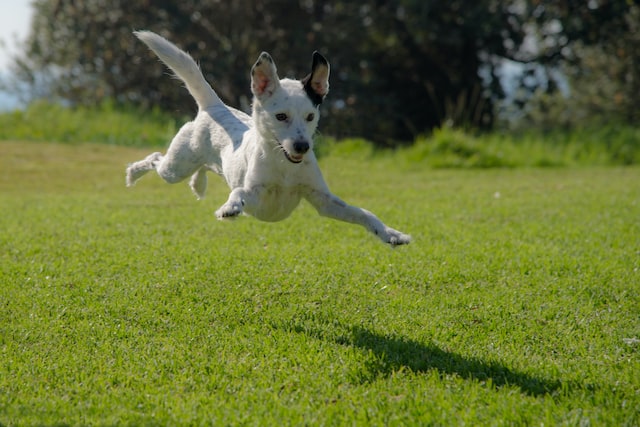If you want to learn how long does it take a dog to digest food, there are some factors that you should consider. You should take a look at how much exercise your pet gets, what kind of diet they’re on, and the types of proteins they’re getting in their food.
Small intestines
Dogs have a very different digestive system than humans. Dogs are genetically wired to handle a diet containing protein-rich food. This means that they can digest large amounts of food at a time. They can also store a lot of food for long periods of time, too. That’s why it’s important to understand how their digestive system works. Understanding how a dog’s digestion works can help you spot problems before they become serious.
Digestion is a process that takes a few hours or more. The amount of time it takes to digest food depends on several factors, including the size and age of your dog. In general, puppies and small dogs have shorter digestive cycles than adults. Larger dogs will also take a longer time to digest their meals.
While the exact timing of dog digestion is highly dependent on the breed and size of your dog, the most common rule of thumb is that a puppy will digest its food in four hours. An adult dog will typically need at least eight hours to complete the digestion process. It may take even longer for a mature dog to completely break down its food.
The digestive process for dogs can also be complicated by a number of health conditions, including parvovirus and gastritis. A number of factors, including the type of food a dog is eating, its size, and the way he or she eats, can also affect the digestive process. Also, certain illnesses and disorders can cause changes to the way a dog poops. If your dog is pooping frequently or has not poop for a significant length of time, it’s important to get your dog checked out by a veterinarian.

Photo by Kabo on Unsplash
The digestive system of dogs is composed of the mouth, the esophagus, the stomach, and the small intestine. Each organ in the dog’s digestive system plays a vital role in breaking down the food a dog eats. For example, the stomach secretes enzymes that assist in breaking down the food. The liver and pancreas also contribute to the dog’s digestion. Finally, the gallbladder produces bile, which helps bind food and neutralizes the acid in the stomach.
Digestibility is an important factor in how quickly a dog can absorb nutrients from his or her diet. Dogs with poor digestion will not be able to absorb the nutrients they need. However, there are some foods that will break down easier than others. Foods that contain high levels of fibre are good for your dog’s digestive health. Ideally, it’s best to purchase fresh, lightly-cooked foods to ensure optimal digestion.
Digestibility is also one of the easiest ways to tell if a dog’s diet is providing him or her with the vitamins and minerals he or she needs. Typically, it’s measured through feeding tests.
Proteins used in dog food
If your dog is having a hard time digesting its food, you might want to consider switching to a more digestible protein source. Your dog’s digestive system is equipped to digest plant matter, but it is important to choose a high-quality, animal-source protein to meet your pet’s needs.
Protein is a complex compound composed of amino acids. These compounds help with several bodily functions, including the production of enzymes, antibodies, and hormones. Dogs need a balanced protein intake to support growth and development. Amino acids also play a critical role in the immune system. Without these essential nutrients, dogs may develop skin and coat problems, weight issues, and other health concerns.
Animal-based proteins are more digestible and provide a better balance of essential amino acids. This makes them an excellent choice for your dog. Fish and chicken are the most common sources of animal-based protein. Adding meat by-products like liver and kidneys to your pet’s diet is also a good idea. However, beware of low-quality, unwholesome meals that can be sourced from diseased animals or slaughterhouse waste.
Protein is an essential part of all living organisms. It plays an important role in building muscle tissue, connective tissue, and other body functions. Dogs and cats also need a certain amount of taurine, which is necessary for proper immune response. A deficiency can cause blindness, heart failure, and other health problems.
Your dog’s digestive system will start working when he or she eats and chews the food. The process moves from the stomach to the intestines, where the food is broken down by natural enzymes. Waste is then pushed out of the large intestine into the stool, which contains water and inorganic matter.
After the intestines, the nutrients from the food travel through the blood and into the cells. Among the other functions of protein are blood clotting and the maintenance of muscle and bone tissues.
Meat and poultry are the most digestible protein sources, followed by fish. Eggs are another popular protein source. Many dog foods contain dried egg whites. Other ingredients that can be found in dog food include wheat, corn, and rice. Each of these protein components has its own digestibility value.
The process of making your dog’s food will also affect its digestibility. For instance, a wet dog food will digest more quickly than a dry one. Moreover, the processing of the food will decrease its nutritional value.
You can also check the ingredients in a dog food label. These are listed in order of weight, and a more digestible food will contain more nutrients for the same volume. Alternatively, you can choose a higher-quality commercial dog food, which generally includes animal-based proteins and additional ingredients that provide additional protein and fiber.
As a general rule, higher-quality, animal-based sources of protein are more digestible than low-quality meals. In addition, you should look for a protein source that is produced by a reputable pet food company.
Exercise affects digestion
It’s no surprise that exercise affects dog digestion. The digestive system is an organ tasked with converting food and fluids into energy. A properly functioning digestive system is key to keeping your pooch in tip top shape. Not only does it help your dog to maintain a healthy weight, but it also ensures that his immune system remains up to par against potentially deadly diseases. Exercise also promotes blood circulation in the gastrointestinal tract, which helps keep bacteria in check.

Photo by Ron Fung on Unsplash
For the most part, a dog’s body requires the right mix of food and water in order to function efficiently. This is why keeping your dog hydrated is so important. Without a steady supply of fluids, your dog’s body temperature can fluctuate wildly, resulting in a number of health problems.
In addition to proper hydration, it’s best to have your dog take a regular break from strenuous exercise. Even short walks can keep your canine companion active and happy. Regular trips to the dog park are a great way to keep your four legged friend entertained and healthy.
In addition to the obvious calorie burn, physical activity also promotes the growth of new cells in the gastrointestinal tract. This is especially true in the small intestine, where the most nourishing foods are digested and assimilated. However, high performance levels can be a real challenge to your canine’s digestive system, as well. You don’t want to overdo the exercise and leave your pet in a compromising situation.
Aside from regular exercise, a good diet is also a must. This is especially true if your canine athlete has any type of dietary sensitivities. Poor nutrition can lower your pooch’s ability to fight off invading infections, as well as decrease his energy levels. On the flip side, a good diet can improve the quality of your dog’s saliva and mucus, which are a critical component of proper bowel function.
There is a lot more to dog health than meets the eye. A holistic approach to your canine’s lifestyle is the only way to guarantee his longevity. If you’re not sure how to get started, it’s never too late to turn to your vet. They are a trusted source of advice and can be a big help if you are unsure of what to do next. Besides, your canine friend is one of the closest members of your family, so it’s only fair to protect it from the hazards of modern life.
Among the most important parts of your dog’s health are its gut and brain. Your pet has a sophisticated set of muscles that need to be kept in tip top shape in order to perform at their optimal level. By taking the time to give your canine friend the attention he deserves, you’ll be doing him a huge favor in the long run.
